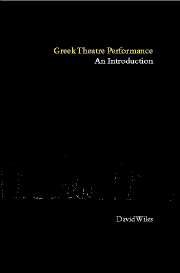3 - Politics
Published online by Cambridge University Press: 05 February 2015
Summary
ATHENIAN DEMOCRACY
History
‘Democracy’ means ‘rule by the people’. In modern democracy millions elect a few representatives who will govern them for a fixed number of years. In ancient democracy, men ruled themselves, and the modern system would not have been considered ‘democratic’. The Athenians went to extraordinary lengths to distribute power amongst a group of some 40,000 or more men so that no individuals could tyrannize the rest. The exclusion of women and non-Athenian males from the category of ‘the people’ should not blind us to the nature of the achievement. The poor wielded the power of their votes, and the rich to a significant extent acquiesced, finding ways of retaining their influence. It is no coincidence that democracy and tragedy were born at the same historical moment. Each member of the Athenian democracy in the classical period was aware of his own responsibility as a maker of decisions, and knew there was no god-given model of the good society. Tragedy was a device which allowed the Athenians to come together and collectively think through their problems. The Greek word polis means a ‘city-state’ or community of citizens. Greek tragedy was necessarily ‘political’: its subject matter was the well being of the polis, and its performance was part of what turned a collection ofmen into a polis.
Democracy was an evolving rather than a static system in the classical period, and I shall trace some ofthe landmarks.
- Type
- Chapter
- Information
- Greek Theatre PerformanceAn Introduction, pp. 48 - 65Publisher: Cambridge University PressPrint publication year: 2000



